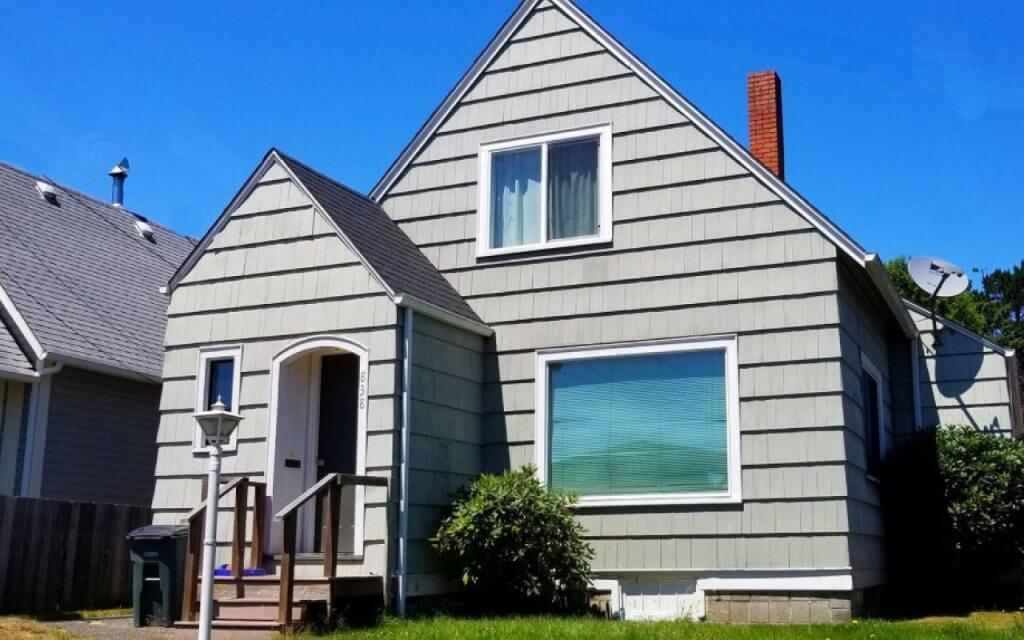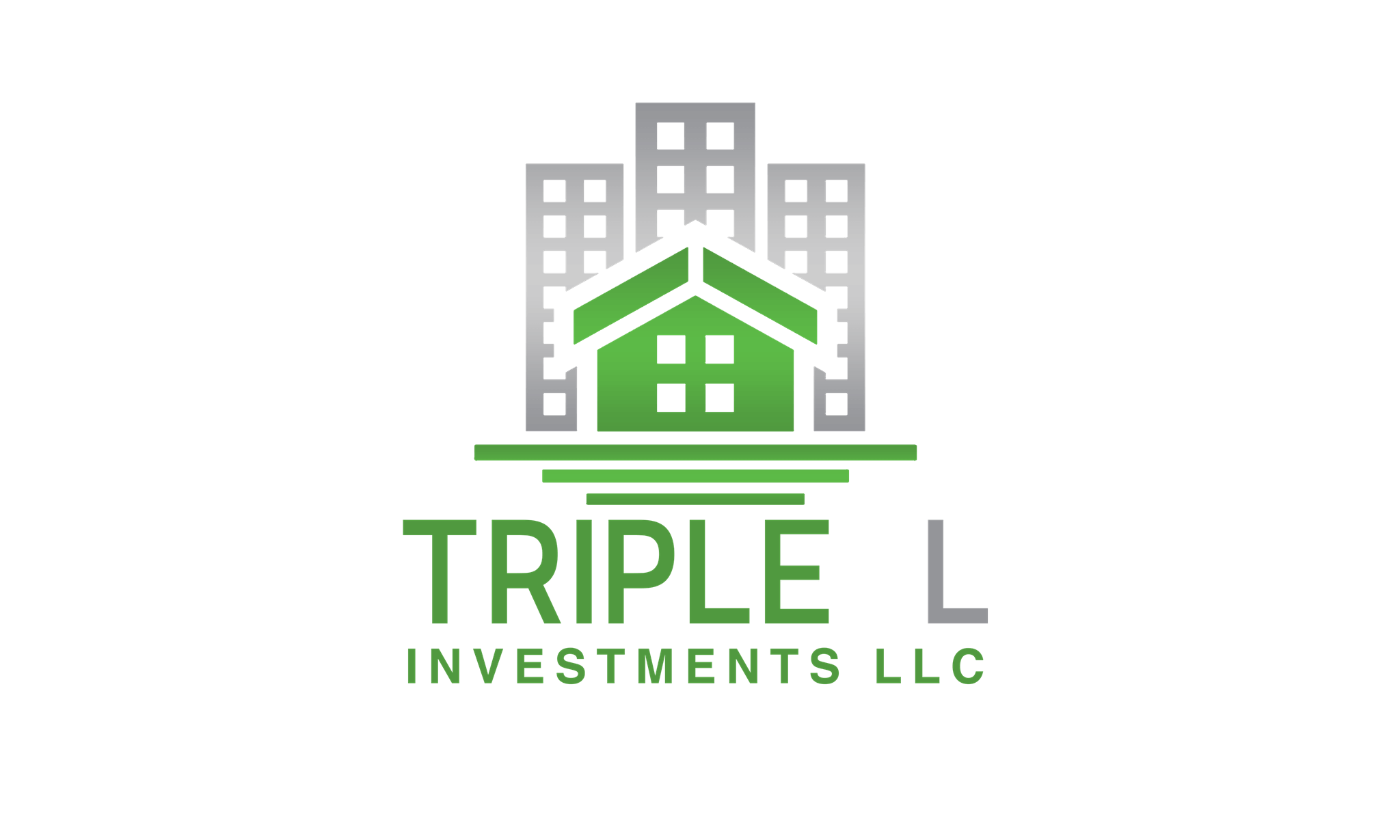How will you buy my home?: A Comprehensive Guide For Home Sellers

The vast majority of residential real estate financing transactions adhere to a predictable pattern. A lending institution funds the transaction after the seller finds a willing buyer with the necessary income, employment history, and credit score to qualify for a mortgage. But what if conventional financing is unavailable and both the buyer and seller desire to sell privately? They employ a technique known as owner financing. As the name implies, the person selling the house pays for the acquisition. Owner financing occurs when the owner of a property for sale provides the buyer with partial or full finance immediately after the buyer makes a down payment. The seller assumes the role of the bank or lender in a standard mortgage. You’re entering into a contract in which the buyer pays you monthly rather than a lump sum from a traditional lender. Example Of Owner Financing Assume a seller promotes a house for $145,000 with owner financing and the buyer and seller reach an agreement on a price. The seller requests a $29,000 down payment as a 20% deposit. The vendor offers to finance the remaining $116,000 over 20 years at a ten percent fixed interest rate with a six-year balloon payment.” Types Of Owner Financing Owner financing comes in a variety of forms. Each has its own set of benefits and drawbacks: Second mortgage If the buyer is unable to acquire a conventional mortgage for the full purchase price of the home, the seller may issue a second mortgage to cover the shortfall. The second mortgage is frequently for a shorter term and at a higher interest rate than the first loan obtained from the lender. If you have a shorter term, you must be prepared to pay it off when the time comes; otherwise, you will be forced to refinance. Land Contract The homebuyer makes agreed-upon payments to the seller under a land contract. When the payment plan is completed, the buyer obtains the deed to the property. Because a land contract usually does not include a bank or mortgage provider, it can be a faster way to secure home financing. However, there is a major risk because many states allow sellers to foreclose if you miss a payment. Lease-purchase A lease-purchase arrangement obligates the homebuyer to rent the property from the owner for a specified period. The buyer gets the option to purchase the home at a predetermined price at the end of that period. Typically, the buyer must make an initial deposit before moving in, and the money is forfeited if the home is not purchased. If you are the buyer in this situation, you should negotiate the option price and make it contingent on financing, clear title, and other conditions, just as you would if you were buying a home the traditional way. Wraparound Mortgage Wraparound financing is provided to home sellers who owe money on their property. In this situation, the owner agrees to sell the property to the buyer in exchange for a down payment and monthly loan payments. The funds will be used to pay off the seller’s existing mortgage. The buyer frequently pays a higher interest rate than the seller’s current mortgage. If the seller defaults on the underlying loan, you could lose the house. This agreement requires the assistance of an experienced attorney. How To Do Owner Financing When Selling A House Find a Qualified Buyer It is not difficult to locate a buyer looking for owner financing. If you’re confident you want to offer this incentive, you can include it in your listing agreement, but the buyer will most likely contact you with the suggestion. Assure that a prospective buyer completes a loan application and thoroughly validates the facts contained within. Conduct a credit check. Check references and validate work and earnings. Do everything a conventional bank does before authorizing a loan. You can avoid all of these problems by using Nea Rental Properties. Nea Rental Properties is a Northeast Arkansas real estate investment firm specializing in the acquisition, development, and management of single-family, multifamily, and commercial properties in Jonesboro, Paragould, and surrounding communities. If you need to sell your house, we would be delighted to make you an offer (this is where owner financing comes in). Please let us know if you need to rent a property; we rarely have vacancies, and when we do, they go quickly. We buy houses in all shapes and sizes and under all conditions. Coming to an Agreement You are still entitled to and should seek, a down payment, just like a buyer with a traditional mortgage. The difference is that you have greater leeway in negotiating the amount because you are not bound by government or banking institution rules. It’s all up to you, and it might be determined by how much money you need to take out of the sale to comfortably move on to a new residence. By accepting owner financing, you’re doing the buyer a huge favor, especially if you agree to accept less than 10% down, so feel free to ask for a somewhat higher interest rate than a traditional lender would require. Because you don’t want to be collecting on the sale of your property for the rest of your life, owner financing is usually short-term. Owner financing is often for five years, with interest amortized over 15 or 30 years but with a balloon payment that puts the loan due in full in a considerably shorter period of time. When the balloon payment comes due at the end of your loan, your buyer will refinance the property to pay you off. If you wish to use such terms, make sure it is appropriately specified in your loan documents. When you conclude an owner financing transaction with Nea Rental Properties, you can reach an agreement with us. We’ll make you an offer, and if you don’t like it, we’ll bargain until we reach
Sell Me Your House Owner-financed: A Comprehensive Guide For Home Sellers

The majority of residential real estate financing transactions follow a consistent pattern. The seller finds a willing buyer with the appropriate income, employment history, and credit score to qualify for a mortgage, and the transaction is funded by a lending institution. But what if standard financing is unavailable and the buyer and seller prefer to sell privately? They use a method called owner financing. The individual selling the house pays for the purchase, as the term implies. Owner financing occurs when the owner of a property for sale gives partial or whole financing to the buyer immediately after the buyer pays a down payment. In a typical mortgage, the seller takes over the function of the bank or lender. You’re entering into a contract in which the buyer pays you monthly rather than handing you a large quantity of money from a traditional lender. Example Of Owner Financing Assume a seller markets a house for sale with owner financing for $145,000 and the buyer and seller agree on a price. The seller demands a $29,000 down payment as a 20 percent down payment. The vendor offers to finance the remaining $116,000 at a ten percent fixed interest rate for 20 years, with a six-year balloon payment. Types Of Owner Financing There are numerous types of owner financing. Each has its own set of advantages and disadvantages: Second mortgage If the buyer is unable to obtain a regular mortgage for the full purchase price of the home, the seller may issue a second mortgage to make up the difference. The second mortgage is often for a shorter duration and at a higher interest rate than the initial mortgage obtained from the lender. With a shorter term, you must be ready to pay it off when the time comes; else, you will be compelled to refinance. Land Contract In a land contract arrangement, the homebuyer makes agreed-upon payments to the seller. The buyer receives the deed to the property once the payment plan is completed. Because a land contract normally does not include a bank or mortgage provider, it can be a significantly speedier alternative to getting home finance. However, because many states allow sellers to foreclose if you miss a payment, there is a significant risk. Lease-purchase A lease-purchase agreement requires the homebuyer to rent the property from the owner for a set length of time. At the end of that period, the buyer has the option to purchase the home at a predetermined price. Typically, the buyer must make an initial deposit before moving in and will forfeit the money if they do not purchase the home. If you are the buyer, in this case, negotiate the option price and make it subject to financing, clear title, and other stipulations, just like you would if you were buying a home the traditional way. Wraparound Mortgage Wraparound financing is available to home sellers who still owe money on their houses. In this case, the owner agrees to sell the house to the buyer in exchange for a down payment and monthly loan payments to the owner. The payments are used to pay down the seller’s current mortgage. Frequently, the buyer pays a greater interest rate than the seller’s current mortgage. The danger is that you will lose the home if the seller defaults on the underlying loan. It is critical to have an experienced attorney on your side for this agreement. How To Do Owner Financing When Selling A House Locate a Qualified Buyer It is not difficult to find a buyer who is searching for owner financing. You can include it in your listing agreement if you’re certain you want to give this enticement, but the buyer will most likely approach you with the proposal. Make certain that a prospective buyer fills out a loan application and thoroughly checks the information included within. Perform a credit check. Check references and validate work and earnings. Before approving a loan, do everything a regular bank does. With Nea Rental Properties, you can avoid all of these headaches. Nea Rental Properties is a Northeast Arkansas real estate investment firm that specializes in the acquisition, development, and management of single-family, multifamily, and commercial properties in Jonesboro, Paragould, and other nearby towns. If you need to sell your property, we would appreciate the opportunity to make you an offer (this is where owner financing comes in). If you need to rent a property, please let us know; we rarely have vacancies, and when we do, they go quickly. We buy houses in all shapes and sizes and under all circumstances. Reaching an Agreement You are still entitled to and should request a down payment, just as a buyer would with a standard mortgage. The distinction is that you have more freedom to negotiate the amount without being constrained by government or banking institution requirements. It’s all up to you, and it may be determined by how much money you need to take out of the deal to comfortably move on to a new property. You’re doing the buyer a tremendous favor by taking owner financing, especially if you agree to accept less than 10% down, so feel free to ask for a somewhat higher interest rate than a traditional lender would require. You don’t want to be collecting on your property sale for the rest of your life, therefore owner financing is usually short-term. Owner financing is usually for five years, with interest amortized over 15 or 30 years, but with a balloon payment that essentially brings the debt due in full in a much shorter amount of time. When the balloon payment is due at the end of your loan arrangement, your buyer will refinance the property to pay you off. If you choose to use terminology like this, make sure they are properly stated in your loan documentation. You can strike an agreement with us when you complete an
Why rent to own is a better option

Why rent to own a home? Rent to own is a flexible option for those who want to own a house, but their financial situation does not support their dreams. Their bad credit does not make them eligible for a mortgage. They also fail to arrange the finances through other means. You have two options with a rent-to-own agreement: Lease option Lease purchase Lease option The lease option is a more flexible choice. You enter into this agreement by making a non-refundable downpayment. Then you make periodic rental payments. Any additional amount you pay in monthly rentals adds up to home credit. With the lease option, you have the choice to buy the house at the end of the lease term. It is not mandatory. But if you can’t manage to buy the house, you lose the downpayment and home credit. Lease purchase Buying the house at the agreed date is obligatory if you sign a lease-purchase. You only go with this option if you are sure that you can arrange finances at the due date. In case of failure to comply with terms and conditions, the landlord may sue you for damages. Either way, the tenant and landlord must decide a few things in advance. First is the property’s final price at the time of acquisition by the tenant. It can be agreed upon in advance or decided at a specific time. The agreement must also stipulate the procedure to determine the price in future. It must also mention whether the tenant will acquire the place in its existing condition or with an upgrade. What are the benefits of renting to own? It is a highly beneficial option for those who want to own a house but don’t have money to pay for it. Can’t qualify for a mortgage You need a good credit score to qualify for a traditional mortgage. A low credit score makes you a riskier venture for the lenders, who may deny you the credit facility. Several factors combine to make up your credit score. These include your payment history, available credit limit, credit mix, etc. If you have bad credit, it shakes the confidence of lenders. Those who want to buy a house but bad credit proves the hurdle should explore the rent-to-own a home option. It enables you to rent a place before eventually buying it. Like a house but can’t buy it You may like a house, but your finances don’t allow you to buy it. You also know that if you missed this opportunity, you might not find such a lavishing house in a comfortable neighborhood again. In such a scenario, rent to own a home is the best possible option. Under this option, you rent a house with an agreement to buy it at a specific time in future. It prevents the seller from selling the home. It also gives you the time to arrange the finances. Trying out the neighborhood before purchasing a house Rent to own a house is also the best option for those unfamiliar with an area. They don’t know the neighborhood and are unsure whether they will be comfortable in this environment. It gives them a chance to occupy the house on a trial basis. If they find the place suitable, they may make it a permanent residence. No need to move out frequently You develop a bond with the place where you live for some time. When you leave that house, a feeling of loss overwhelms you. You also lose the friendships you make during your stay at a place. It is also an overwhelming task to move your belongings too frequently. You may damage them during the shifting process. When you move to a new place, it needs time to settle down and get back to normality. You may fail to feel at home in that place. It impacts your productivity and makes things annoying. Rent to own a house is the solution to all these problems. With an agreement to buy the house in future, you can secure your favorite place. Best tips for renting to own a house Before you sign a rent-to-own a house agreement, you need to ensure the following: Lease option vs lease purchase If you are unsure whether you can buy the house at the end of the lease term or not, go with the lease option. A lease purchase makes it legally binding to buy the house at the agreed date. Otherwise, the owner may sue you for failing to fulfill the agreement. Read the contract thoroughly Before signing the agreement, it is compulsory to read the contract meticulously. Renting to own a house is vastly different from simply renting a place. You must understand every term and condition and agree to them consciously. Get a home inspection It is also a reasonable option. When you get a home inspected by an expert, it ensures that there are no irreversible flaws in the building. The owner of the house bears the cost of this inspection. If you are to own a place eventually, you need to ensure that it will not cost you a fortune in repair and maintenance. Lock in the price The prices of property mostly go up with time. Rent to own a house gives you the option to lock the price. It enables you to buy the place at a more favorable price, even if the rates go up in the market. Alternatively, you can always walk away without penalty if the prices go down. But you will lose the downpayment and any extra rent you paid as home credit. Repair and maintenance You need to have a clear understanding of the terms and conditions. The agreement must explicitly state who will
How to get a home with bad credit

What is bad credit? Bad credit means your credit score is lower than the lender’s minimum threshold. Generally, this score ranges between 300-800 in the case of a mortgage. If your credit score is on the lower side of this range, it affects your ability to secure a mortgage. Your credit score also affects the interest on the mortgage. A lower credit score means your ability to repay a debt is not guaranteed. As a result, a lender charges you a higher interest rate to secure itself against a possible default. What factors impact your credit score? Several factors influence your credit score. Lending companies analyze these indicators to assess your ability to repay a loan. These include: Credit utilization ratio The credit utilization ratio shows how much credit you have availed from the total credit limit available. You are in a difficult financial position if you have utilized a higher percentage. In such a scenario, the lending companies feel reluctant to extend their services. Or they will charge you a higher interest rate as compensation for the higher risk. Payment history Your payment history also plays a crucial role in securing a loan. If you pay bills in due time, it improves your credit score. Late payments negatively impact the credit score and impede your ability to get a loan on favorable terms. You must pay the minimum amount required if you can’t pay the whole amount at the due date. This way, it will not reflect as a missed payment. Credit history length The average age of your credit accounts influences your credit score. Lenders analyze the age of your oldest and newest credit accounts. If you have a long credit history, it vouches for your ability to pay back loans. A sustained credit history improves your credit score. It makes it easier for lenders to extend a loan facility. However, if you have defaulted on several accounts in the past, it pushes your credit score down. It makes a mortgage expensive for you. New credit accounts If you are going to apply for a mortgage soon, don’t open a new line of credit. It negatively impacts your credit score. Also, don’t close an established credit line. When you shut down an existing credit account, it reduces the available credit. It is terrible for your financial outlook. Also, don’t use too much credit in a short time. It indicates that you are cash-strapped and financially vulnerable. Try to limit your expenses or get some loan from your friends. When applying for a new credit account, the lender looks into your credit file. It wants to ensure that you can pay back in due time. This evaluation appears as a hard inquiry in your record. A higher number of hard inquiries negatively impacts your credit score. Credit mix The credit mix indicates what kind of credit accounts you have. It shows your ability to accommodate different credit lines. It reflects positively on your credit score if you have a diverse portfolio. How to buy a house with bad credit? If you have a bad credit score, it makes it challenging to buy a house. But you are not entirely out of options. Shop around Not all banks have the same eligibility criteria for extending a loan facility. Don’t be discouraged if multiple banks show you the door. Keep looking around and getting information. Eventually, you will find one that offers you a loan to buy a house at a favorable interest rate. Lenders other than banks If no bank accepts your application for a loan due to a poor credit score, you can look for lenders other than banks. There are independent companies who may entertain your application despite all the reservations. Find a co-signer If nobody entertains your application for a mortgage, a co-signer can help you get through this. A family member with a good credit score can become your co-signer. A co-signer takes complete responsibility for paying back a loan if the primary borrower defaults. He is also responsible for paying the missed instalments. It gives assurance to the lender and helps you secure a loan to buy a house. Owner financing Owner financing is another viable option to buy a house in case of bad credit. You don’t need to rely on a traditional mortgage. Instead, the owner finances the buyer at a higher interest rate than the market. When you buy a house using owner financing, you make a down payment and pay the remaining amount over the agreed time. It is the fastest and easiest way to meet your financing needs for buying a house. However, it is more expensive than traditional borrowing due to a higher risk to the lender. In this type of financing, the lender neither considers your credit score nor performs any background check. Owner financing can prove the ultimate solution if you have explored all other options and failed in securing a mortgage. How to improve bad credit before applying for a mortgage? There are several steps that you can take to improve your credit score. It can help you secure an affordable mortgage rather quickly. Below are the measures that can prove consequential in improving your credit score: Review credit report The first step you can take is to review your credit report. You can access it through annualcreditreport.com. It helps you identify the errors and omissions in your credit report. There could be an open loan that you already have settled or an incorrect late payment. Removing these errors can give your credit score a positive push. Stay within the budget Make a budget for yourself and stay within limits. It will help you control your spending, preventing the need for any new credit facility. It boosts your credit score
